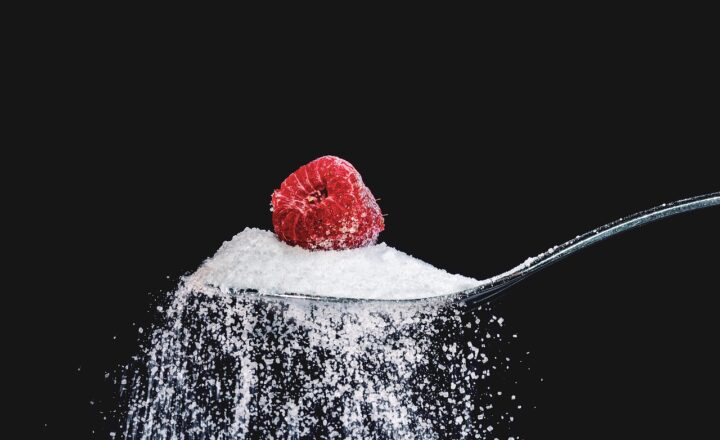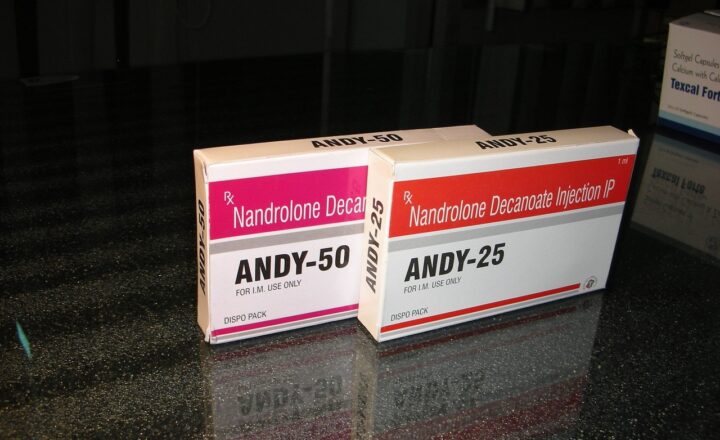The Best Foods to Fuel Muscle Growth and Support Your Workout Efforts
November 14, 2024

When it comes to building muscle, workout routines and training regimens account for just a part of the equation. The real magic happens in the kitchen. Nutrition plays a critical role in muscle growth and recovery, ensuring that the body has all the necessary nutrients to repair and build muscle after physical exertion. In this article, we will dive deep into the best foods that support muscle growth and recovery, so you can ensure your diet is optimized for maximum gains.
Why Nutrition is Key for Muscle Growth
To understand why specific foods are vital for muscle growth, we need to recognize how muscle repair works. When you engage in strength training, you create microscopic tears in your muscle fibers. The body responds by repairing these tears, ultimately resulting in larger muscles. This repair process requires raw materials in the form of nutrients, particularly proteins, carbohydrates, and fats, along with vitamins and minerals that help in cellular processes.
The right combination of these nutrients plays an essential role in:
- Muscle Repair: Adequate protein supports the muscle rebuilding process.
- Energy Provision: Carbohydrates provide the necessary energy for strenuous workouts and recovery.
- Hormonal Balance: Healthy fats are crucial for the production of hormones like testosterone, which is vital for muscle growth.
- Reduced Inflammation: Certain nutrients help minimize inflammation post-exercise, aiding quicker recovery.
In the next sections, we will explore the essential foods that can assist in each of these areas, helping athletes achieve their fitness goals while maintaining overall health.
1. Protein-Rich Foods: The Building Blocks of Muscle
Protein is arguably the most critical macronutrient for muscle growth. It provides the amino acids necessary for muscle repair and growth. Here are some of the best protein sources:
Lean Meats
Lean meats such as chicken, turkey, and pork tenderloin are excellent sources of protein. A standard chicken breast contains about 30 grams of protein per 100 grams, making it ideal for muscle repair.
Fish
Fish like salmon, tuna, and mackerel are not only high in protein but also packed with omega-3 fatty acids, which have anti-inflammatory properties and can help in muscle recovery. Salmon offers about 25 grams of protein per 100 grams.
Dairy Products
Dairy products such as Greek yogurt, cottage cheese, and milk are great sources of protein and calcium. Greek yogurt provides about 10 grams of protein per 100 grams and can be an excellent post-workout snack when combined with fruits.
Eggs
Eggs are incredibly versatile and rich in protein, providing about 6 grams of protein per large egg. They also contain beneficial nutrients like vitamin B12 and choline, crucial for energy production and muscle function.
Plant-Based Proteins
For those following a vegetarian or vegan diet, options such as lentils, chickpeas, tofu, and quinoa are excellent protein sources. Quinoa stands out as a complete protein, containing all nine essential amino acids, making it particularly beneficial for muscle growth.
2. Carbohydrates: The Fuel for Your Workouts
Carbohydrates are essential for providing the energy needed during workouts. They replenish glycogen stores in muscles and liver, ensuring your body has the stamina for intense training. Here’s a look at some of the best carbohydrate sources:
Whole Grains
Opt for whole grains like brown rice, oats, and whole-grain bread. Oats provide a slow and steady release of energy and help maintain glycogen levels for prolonged stamina during workouts. One cup of cooked oats contains about 27 grams of carbohydrates.
Fruits
Fruits like bananas, berries, and apples are not only rich in carbohydrates but also packed with vitamins and antioxidants. Bananas are especially great pre-workout snacks due to their quick digestible carbs and potassium, aiding in muscle function.
Potatoes and Sweet Potatoes
Both regular potatoes and sweet potatoes are excellent sources of carbohydrates. Sweet potatoes are nutrient-dense, providing not only carbs but also beta-carotene and fiber. Regular potatoes are high in potassium, which can help reduce muscle cramps.
Legumes
In addition to being great protein sources, legumes such as beans, lentils, and peas also provide complex carbohydrates that release energy gradually. This helps sustain energy levels throughout your workout and promotes recovery.
3. Healthy Fats: Supporting Hormonal Function and Absorption
Healthy fats are crucial for optimal hormonal function and nutrient absorption, particularly for fat-soluble vitamins. Incorporate these healthy fats into your diet:
Avocados
Avocados offer healthy monounsaturated fats and fiber, promoting heart health and aiding in recovery. One avocado contains about 15 grams of healthy fat.
Nuts and Seeds
Nuts such as almonds, walnuts, and seeds like chia and flaxseed contain healthy fats, protein, and fiber. Almonds provide about 6 grams of protein and 14 grams of healthy fats per ounce.
Olive Oil
A staple in Mediterranean diets, olive oil is rich in monounsaturated fats and antioxidants. Using olive oil for cooking or as a dressing can help reduce inflammation and support recovery processes.
4. Nutrient-Dense Foods: Supporting Recovery and Overall Health
Vitamins and minerals are often overlooked in muscle growth, but they play a vital role in recovery and overall health:
Dark Leafy Greens
Vegetables such as spinach, kale, and broccoli are rich in vitamins, minerals, and antioxidants. They support overall health and reduce oxidative stress, aiding in faster recovery after workouts.
Berries
Berries like blueberries and strawberries are packed with antioxidants that fight inflammation. Consuming these can help with recovery time post-exercise.
Fermented Foods
Foods like kimchi, yogurt, and kefir support gut health and can improve nutrient absorption. A healthy gut microbiome contributes to overall wellness, which can indirectly enhance muscle building and recovery capabilities.
Timing Your Nutrition: Pre and Post Workout Meals
Optimizing your nutrition isn’t just about eating the right foods—timing also matters. Here’s how to effectively time your meals:
Pre-Workout Nutrition
Aim to consume a balanced meal rich in carbohydrates and protein about 2 to 3 hours before your workout. If you’re short on time, a light snack containing quick-digesting carbs and some protein about 30 to 60 minutes prior to your session can provide energy and enhance performance.
Post-Workout Recovery
After your workout, replenish your energy and provide your body with the nutrients it requires to recover. Aim for a meal or snack that contains protein and carbohydrates within 30 minutes post-exercise. This will kickstart the muscle rebuilding process while restoring glycogen levels.
Conclusion: Fuel Your Gains with Proper Nutrition
Building muscle requires dedication, both in the gym and the kitchen. By prioritizing protein, carbohydrates, healthy fats, and nutrient-dense foods, you’ll provide your body with the necessary tools to repair, grow, and strengthen your muscles. Remember to not only focus on what you eat but also when you eat to maximize your workout efforts. With the right approach to nutrition, you’ll be well on your way to achieving your fitness goals and fueling your muscle growth effectively in 2024 and beyond.
When you take care of your body through thoughtful nutrition, you set the stage for lasting health, well-being, and athletic performance.







